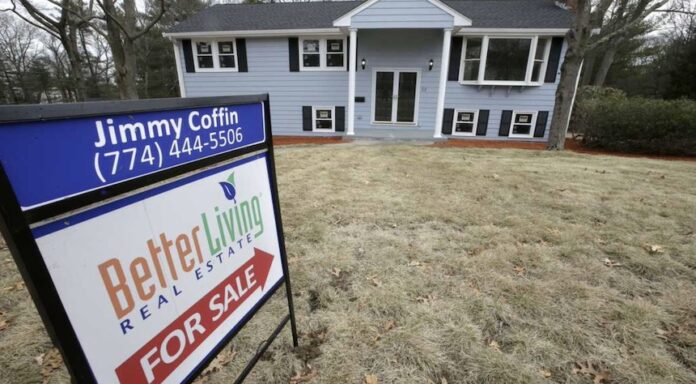The “American Dream.” It’s what being an American is all about. Get a good job, get married, have kids, and be able to buy a nice house in the suburbs. It’s Norman Rockwell-esque. But for a growing number of Americans, that dream is becoming farther out of reach or non-existent altogether. For some, it might depend on what side of the political aisle you are on, remembering the prosperous years of the Trump economy and now comparing that to the struggling Biden economy. But a new poll is revealing that Americans are getting more cynical about the American Dream — or never really believed it at all.
% of americans who say the american dream (if you work hard you’ll get ahead) still holds true: 36%
-wsj/norc— ian bremmer (@ianbremmer) November 27, 2023
The Wall Street Journal/NORC survey, conducted between October 19-24, surveyed 1,163 voters. It produced some interesting results. A poll of those surveyed found that 36 percent believed the American Dream was still true. 45 percent of the respondents said it “once was true, but is not anymore.” Only 18% said “it has never been true.” Just 18 percent of respondents said, “It never held true.”
Unfortunately, the game played by the left of “Who’s more oppressed?” A large percentage of Americans seem to agree with this statement. The polled half of the respondents agreed that America’s political and economic systems “are stacked against people like myself,” while only 39 percent disagreed. It is not surprising that a poll conducted after a presidential election would show a partisan split. Both Democrats and Republicans said that their everyday lives were “objectively worse.”
One respondent, who claimed to have voted for Joe Biden, said: “But I would be lying if I didn’t admit that money was tight.” The same person also mentioned the weakening of labor unions in the United States. One respondent who said that he voted for Donald Trump, cited the high inflation rate: “Within inflation, you have to work hard to make ends meet, and any extra effort you put in to try to avoid being in a hole is only to keep you out of it.” He also said that as a retired person, “if you came to work, did your job, and tried to help others, you got rewarded.”
Trickle-down economics failed the middle class.
Under President Biden, wages are higher than before the pandemic, inflation is falling since its pandemic spikes, and unemployment is under 4% for the longest stretch in 50 years.
— Secretary Pete Buttigieg (@SecretaryPete) November 25, 2023
Black and Hispanic Americans believe that the American Dream remains elusive for them. Despite the fact that black and Hispanic unemployment rates were at record lows of 4.7 and 4.4 percent in April this year, respondents from these groups believe the American Dream is “stacked” against them politically and economically. 68 percent of black voters, around half of Hispanic voters, and even white voters, said the same. A 62-year-old African-American woman said that she thought things were “better,” when she was younger, and that her kids “haven’t been rewarded.” She continued, “I am African-American and the odds have always been against black people.” The poll revealed some alarming results. Of those 65 years and older, 48 percent believed that hard work can lead to success and the American Dream. Younger voters, however, are less likely to believe in the benefits of hard work. Only 28 percent of those aged 50 and under think that it pays off.
Will the 2024 Presidential elections change the minds and hearts of Americans who are sour on the American Dream? It’s too early to tell. Recent polls suggest that many Americans are beginning to realize that Republicans might be better able to secure this dream than Joe Biden or the Democrats. Real Clear Politics average shows Trump ahead by 47.4 percent, compared to Biden at 44.8 percent. There has been a 15-point shift in black voters from Biden to Trump. Hispanics saw an 11-point change, while voters under 50 were affected by a 13-point shift.
The American Dream is much more than politics. You can’t but believe that there are other factors in the responses of those who took the poll. The American education system does not teach the virtues associated with the American Dream. It’s possible that some Americans, for whatever reasons, are no longer willing to put in the effort to achieve their American Dream. If only 18 percent of Americans think that it is dead, then there’s still hope.
Bidenomics is killing the American Dream. pic.twitter.com/Hp8UBcIGFD
— Senator Marco Rubio (@SenMarcoRubio) November 24, 2023




